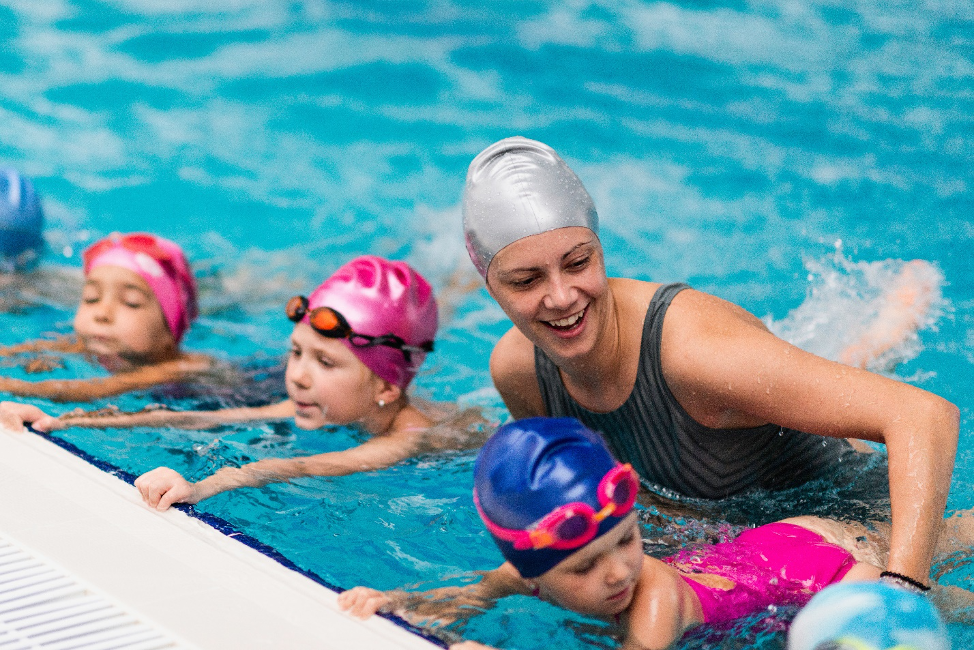Introduction
As parents, ensuring the safety, health, and overall development of our children is our top priority. When it comes to water safety, there’s no room for compromise.
Ensuring that your children learn how to swim could save lives. This is why enrolling your little ones in swimming lessons at an early age is more than just a fun activity – it’s a crucial life skill that can have a profound impact on their personal safety, physical health, and cognitive development.
In this blog, we’ll explore why learning to swim at an early age is so vital for your child’s overall well-being and how you can set them on a path to becoming confident and capable swimmers.
Personal Safety
With great aquatic adventures come great responsibilities, especially when it comes to our children. In this segment, we’ll dive deep into the critical aspect of personal safety, understanding the risks, the importance of early swim lessons as a prevention measure, and how these lessons can cultivate both water confidence and self-rescue skills in your little ones.
Drowning statistics and risks
Did you know that drowning is one of the leading causes of accidental death among children? Particularly in a country like Australia, with its abundant coastline and waterways, water-related accidents are sadly not uncommon. It’s a sobering thought, but one that highlights the urgency of equipping our children with essential water safety skills.
Understanding the risks is the first step toward mitigating them. With the importance of being aware of these risks, consider how early swim lessons can be a powerful preventative measure.
Early swim lessons as a prevention measure
The best way to tackle this alarming statistic is prevention. Early swim lessons serve as a powerful preventive measure, significantly reducing the risk of drowning. By introducing children to water in a controlled and supervised environment, they become familiar with the water and learn how to respond appropriately in different situations.
Building water confidence and self-rescue skills
Beyond prevention, early swim lessons also instil water confidence and self-rescue skills in children. Learning how to float, tread water, and swim to safety are skills that can save lives. These lessons not only provide them with the ability to navigate water but also with a sense of confidence and accomplishment that extends far beyond the pool.
Physical Health Benefits
Let’s talk about the incredible workout that comes with making a splash! As parents, we’re always seeking ways to ensure our children’s holistic development, and what better way to do so than by immersing them in the world of swimming?
Development of muscle strength and coordination
Swimming is a fantastic way to promote physical development in children. The resistance of the water provides a full-body workout that helps build muscle strength and coordination. As they kick, paddle, and move through the water, their muscles are engaged, leading to healthy growth and development.
Cognitive Development
Early swimming education has more to offer than meets the eye. As parents, we’re all about giving our children a head start, and in this section, we’ll explore how swimming can stimulate brain development, enhance problem-solving abilities, and create a ripple effect of cognitive benefits.
Stimulating brain development and problem-solving abilities
Believe it or not, swimming isn’t just a physical activity, it’s a mental workout too. The complex movements and coordination required in swimming stimulate brain development and enhance problem-solving abilities. Learning different strokes and techniques requires concentration and practice, fostering cognitive skills that will benefit your child academically and beyond.
Practical Tips for Early Swimming Education
Navigating the waters of parenting can sometimes feel like treading into the unknown – and that’s where we come in to offer some practical guidance! As you embark on the journey of early swimming education for your child, it’s essential to have a clear compass to steer you in the right direction.
Ideal age to start swimming lessons
You might be wondering, “When is the best time to start?” Generally, children can begin formal swimming lessons as early as 6 months old. However, every child is unique, so it’s important to consider their comfort level and developmental readiness.
To learn more and find the answers to questions like “how much do swimming lessons cost”, contact Rackley Swimming to get your child started on their swimming journey.
Choosing the right swimming program
Selecting the right swimming program is essential for a positive experience. Look for qualified instructors who understand the unique needs of young learners. A program that emphasises water safety, gradual skill progression, and a fun learning environment can make a world of difference.
That’s where Rackley Swimming comes in. Rackley Swimming provides a wide range of classes for all ages and abilities. Search for swimming classes Brisbane, or find a Rackley centre that’s closest to you today!
Conclusion
In a country where water activities are deeply ingrained in our lifestyle, ensuring our children are equipped with water safety skills is non-negotiable. Early swimming lessons go beyond just strokes and kicks, they empower our children with confidence, physical strength, and cognitive agility. By investing in their swimming education, we are giving them a gift that will last a lifetime, providing them with the tools they need to stay safe, healthy, and successful in all their future endeavours.
Wondering “How to learn swimming?” or are you struggling to find reliable information on when your child should start learning? Rackley Swimming can help your child find the right class and learn essential life saving skills (not to mention have fun). Locate your nearest Rackley Swimming centre today and we’ll see you at the pool.

